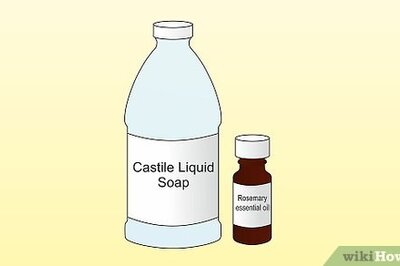
views
New Delhi: The legend goes, when “the father of India’s Constitution”, Dr BR Ambedkar, refused to draft Article 370, Prime Minister Jawaharlal Nehru got a member of his cabinet, N Gopalaswami Ayyangar, to do the job. Though the version of Ambedkar’s refusal has been rejected and contested by some historians and experts, there are others who stand by it.
“In 1949, then Prime Minister of India Jawaharlal Nehru had directed Kashmiri leader Sheikh Abdullah to consult Dr BR Ambedkar to prepare a draft suitable for Kashmir. Dr BR Ambedkar, the first law minister of India and the chairman of the Constitution drafting committee, refused to draft Article 370 because he was strictly opposed,” says the blog Law Corner.
Article 370, a “temporary provision”, allowed Jammu and Kashmir its own constitution, a separate flag and independence over all issues apart from defence, foreign affairs and communications. The BJP-led central government on Monday moved a resolution in the Rajya Sabha to revoke the clause.
According to online posts, Ambedkar felt: “Making limited application of laws made by Parliament for the state of Jammu and Kashmir would create lots of problems rather than solving.”
A quote attributed to him says, “You wish India should protect your border, she should build roads in your areas, she should supply you food, grains and Kashmir should get equal status as India. But government of India should have only limited powers and Indian people should have no right in Kashmir. To give consent in your proposal, would be a treacherous thing against the interest of India and I, as a law minister of India, will never do.”
When Ambedkar refused, Sheikh Abdullah approached Nehru. And, on the directions of the prime minister, Ayyangar – who was a member of the drafting committee of the Constitution, a leader of the Rajya Sabha and a former diwan to Maharaja Hari Singh of Jammu and Kashmir – framed Article 370.
However, there were snarls along the way. In October 1949, Abdullah and Ayyangar had a run-in over parts of the Article. “Our discussion this morning, as I indicated to you, left me even more distressed than I have been since I received your last letter from Srinagar … I feel weighted with the responsibility of finding a solution for the difficulties that, after Panditji left for America and within the last few days, have been created, from my point of view without adequate excuse,” Ayyangar wrote to Abdullah on October 15. He even threatened to resign from the Constituent Assembly.
As stated in the letter, Nehru was in the United States at the time. Addressing members of the US Congress, he said: “Where freedom is menaced or justice threatened or where aggression takes place, we cannot be and shall not be neutral.”
Since, Nehru was abroad, Ayyangar turned to Vallabhbhai Patel for help. There was no love lost between the Sardar and Abdullah. “Whenever Sheikh Sahib wishes to back out, he always confronts us with his duty to the people,” Patel told Ayyangar. When Nehru returned, Patel wrote to him: “After a great deal of discussion, I could persuade the [Congress] party to accept.”
Know more about Gopalaswami Ayyangar:
Ayyangar was born on March 31, 1882 in Tanjore (now Thanjavur, in Tamil Nadu) and he studied at the Wesley School and later at Presidency College in the-then Madras state. In 1905, he joined the Madras Civil Service and held several posts, including deputy collector and member of the board of revenue.
He was the prime minister of Kashmir from 1937-1943. Ayyangar’s tenure as a member of the Council of States lasted from 1943-1947. He was also a member of the Constituent Assembly and the thirteen-member drafting committee.
He was also the head of the delegation that represented India at the United Nations in the persistent dispute over Kashmir.
Ayyangar was honoured with the title of ‘Diwan Bahadur’ in 1937: this was the highest title awarded by a British viceroy. In 1941, he received a knighthood from King George VI.
Ayyangar died in Madras on February 10, 1953.
Scholars, however, refute the above mentioned stand on Ambedkar refusing to draft the Constitution. In the opinion of some scholars, each side invokes him to meet their ideas of nationalism or autonomy.
In Pakistan or Partition of India written by Ambedkar, it is mentioned that he said, "Give the Hindu and Buddhist part to India. We are really not concerned with the Muslim part of Kashmir. It is a matter between Muslims of Kashmir and Pakistan. They may decide the issue, as they like. Or if you like, divide it into three parts. The ceasefire zones the valley and Jammu-Ladakh region and has a plebiscite only in the valley. What I am afraid is that in the proposed plebiscite which is to be an overall plebiscite the Hindus and Buddhist of Kashmir are likely to be dragged into Pakistan against their wishes and we may have to face the same problems as we are facing today in East Bengal."
The version is often quoted to counter Right-wing narrative on Ambedkar's stand on Article 370.


















Comments
0 comment